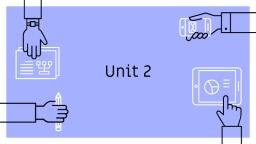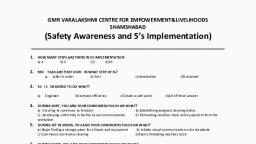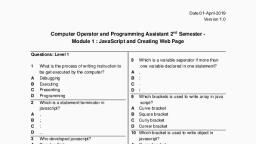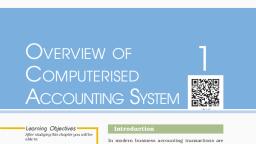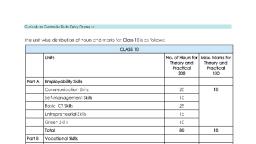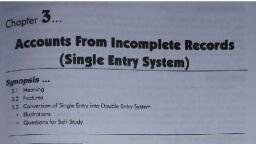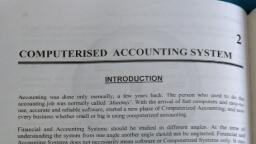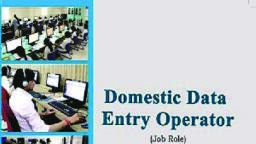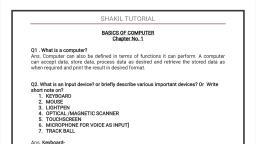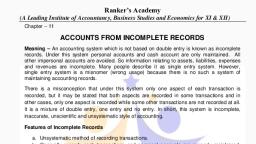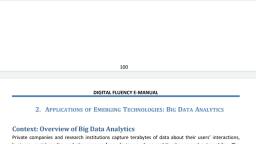Page 1 :
Unit 2
Page 2 :
Job Responsibilities of a, Data Entry Operator
Page 3 :
Who is a Data Entry Operator?, Data Entry Operators take, information from forms,, applications or company, files and enter it into, computer system, databases or applications, for business use., , Individuals are responsible, to provide daily work, reports and work on a daily, basis. Individual tasks may, vary depending on the size, of the organization and, nature of the project, undertaken, , 3
Page 4 :
Skills, required, ➔ Thorough knowledge of latest, database management, softwares and IT initiatives, ➔ Fast typing skills, ➔ Keen eye for errors, ➔ Computer skills
Page 5 :
Functions of a Data Entry Operator, ➔ Reviews and verifies data entered to ensure, accuracy., ➔ Tracks documents and completes tasks within, stipulated time., ➔ Creates and safely stores backup files., ➔ Trains new data entry operators and assists tech, support teams with hardware and software, problems, , 5
Page 6 :
Responsibilities of a Data Entry, Operator, ➔ Ensuring the accuracy of data- leaving no room for, mistakes/errors., ➔ Confidentiality - the operator must be able to identify, confidential information, keep it safe and secure and, ensure that it is not misused at any cost., ➔ Communication - must be able to communicate their, thoughts aptly and confidently to maintain a healthy work, ethic and improve productivity., ➔ Focus - must pay attention to avoid repetition of tasks, and improve accuracy., ➔ Making corrections - the operator must always be ready to, make corrections, improve their skills and techniques and, should always be open to receiving feedback., , 6
Page 7 :
Customer Orientation, in Data Entry Jobs
Page 8 :
Data is a, powerful, Business, Management, Tool, To manage, compile,, interpret data and, feed it to a, computer requires, skill, patience and, shrewdness., , 8
Page 9 :
“, , Data Entry Services are, important because ▹, ▹, ▹, ▹, ▹, , Organising information, which helps, a company grow., Reduce infrastructure cost of, storing hard copies of data., Reduce cost of printing the hard, copies of the data., Preserves data by creating back, ups., Improves productivity of business, , 9
Page 10 :
Two Types of Data Entry, Offline Data Entry, , Offshore Data Entry, , Conversion of paper, document into digital format., This helps in saving, infrastructure and stationery, costs. It requires a person, with fast and efficient typing, skills., , Involves data conversion, data, processing and keyboarding., This requires high information, content which is transmitted, using telephones/internet., , 10
Page 11 :
Competencies for a Good, Customer Service, Communication, , Planning, , Customer Sensitivity, , Situation analysis, , Decisiveness, , Work standards, , Energy, , Follow up, , Flexibility, , Impact, , Job Knowledge, , Initiative, , Motivation to serve, , Integrity, , Persuasiveness, , Communication, , 11
Page 12 :
Performance, Measures
Page 13 :
“, , Service Level, Agreements A data entry operator needs to be, aware of the service level agreements, based on which the performance of, , the operator and the organization is, measured., , 13
Page 14 :
Turnaround Time, ➔ It is the time it takes to deliver on a request once it, reaches the business for processing., ➔ Some businesses have a different turnaround time based, , on how important the business is., ➔ The data entry operator must always aim to complete the, , assigned task with maximum accuracy within the, expected turnaround time., , 14
Page 15 :
Performing a given task within the, expected turnaround time, improves the professional impact, of the employee as well as the, company. It is one of the key, features of a well able data entry, operator., , 15
Page 16 :
Accuracy, ➔ It is important to maintain the accuracy of the data at a, high level to ensure that the business runs effectively., ➔ It is advisable to maintain an accuracy of 99% tom 99.5%, , 16
Page 17 :
Thank you
